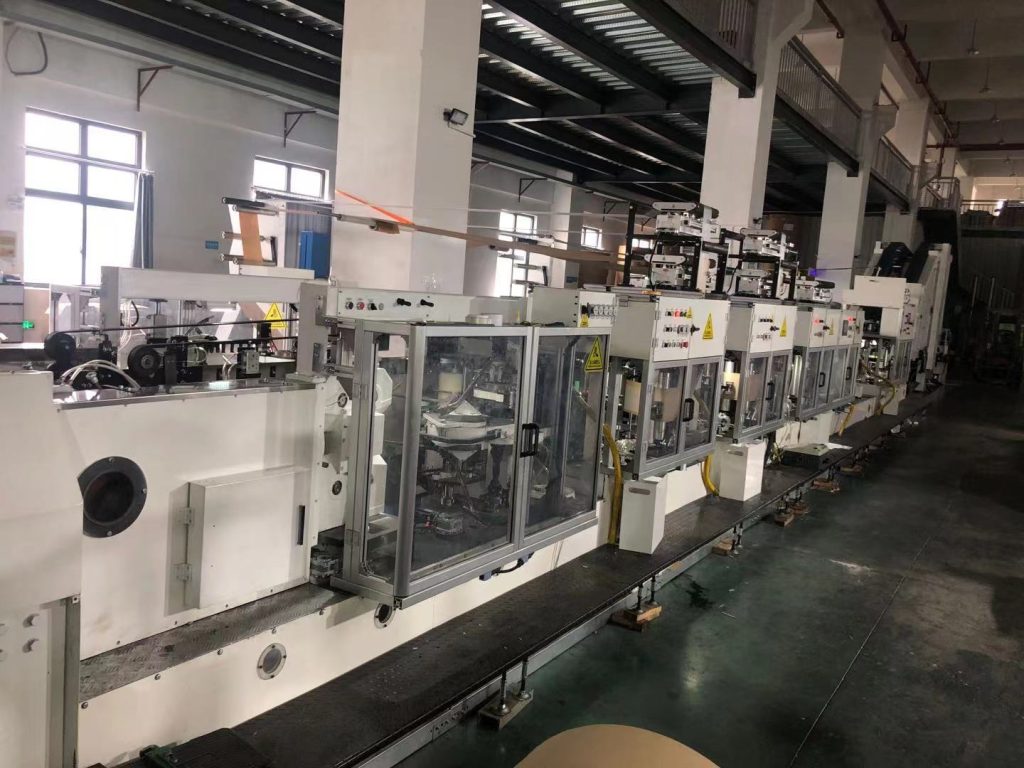Advancing Sustainable Packaging through IoT-Enabled Smart Manufacturing Systems for Paper Bag Production
Release time:2025-05-12 Classification:Knowledge
The global shift toward eco-friendly packaging solutions has positioned paper bags as a cornerstone of sustainable consumer practices. To meet rising demand while maintaining environmental and operational efficiency, manufacturers are increasingly adopting IoT-enabled smart manufacturing systems. These systems integrate advanced connectivity, real-time analytics, and automation to optimize production workflows, reduce waste, and enhance scalability in paper bag manufacturing.

Core Components of IoT-Enabled Systems
An IoT-enabled paper bag manufacturing system leverages interconnected sensors, edge computing, and cloud-based platforms to monitor and manage production stages. Key components include:
- Real-Time Equipment Monitoring: Embedded sensors track machinery performance, detecting anomalies like overheating or misalignment to minimize downtime.
- Predictive Maintenance: Machine learning algorithms analyze historical and real-time data to forecast maintenance needs, preventing unexpected breakdowns.
- Material Optimization: IoT devices measure raw material usage with precision, reducing overconsumption and aligning with sustainability goals.
- Quality Control Automation: Vision systems and AI-powered cameras inspect products for defects, ensuring consistency in dimensions, print quality, and structural integrity.
Operational Benefits
By integrating IoT, manufacturers achieve:
- Enhanced Efficiency: Automated workflows adjust production speed based on real-time demand, optimizing resource allocation.
- Energy Conservation: Smart energy management systems regulate power usage across facilities, lowering carbon footprints.
- Supply Chain Transparency: Blockchain-integrated IoT platforms trace raw material origins, supporting ethical sourcing and compliance.
Sustainability Impact
IoT-enabled systems directly contribute to circular economy objectives. Data-driven insights enable manufacturers to recycle excess materials, adopt biodegradable coatings, and design reusable paper bags. Additionally, reduced energy consumption and waste align with global certifications like FSC (Forest Stewardship Council) and ISO 14001.
Future Trends
Emerging innovations, such as 5G-enabled edge computing and digital twin simulations, promise further advancements. These technologies will enable hyper-accurate predictive analytics and virtual testing of new bag designs, accelerating time-to-market for sustainable solutions.
IoT-enabled smart manufacturing systems are redefining paper bag production by merging operational excellence with environmental stewardship. As industries prioritize sustainability, adopting these technologies ensures manufacturers remain competitive while advancing global ecological objectives. This synergy of connectivity, automation, and data intelligence positions IoT as a transformative force in the packaging sector.






